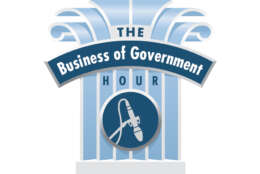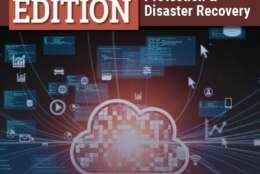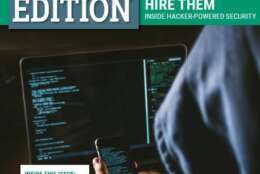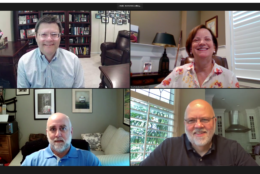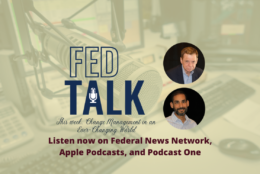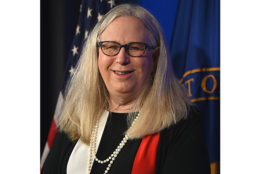Analysis
-
The COVID-19 pandemic changed almost every facet of life and cybersecurity was no different. As employees were forced to work from home, companies and government agencies had to expand their IT infrastructure to accommodate.
July 12, 2021 -
The Defense Department is undergoing its first contract finance study in decades, looking at the fiscal health of the defense industrial base and how the Pentagon’s policies are working with private partners.
July 12, 2021 -
Hosted by Dr. Richard Shurtz and Jim Russ. Sponsored by Stratford University. What happens once we’ve mined all 21 million bitcoins. And we remember John McAfee, the creator of a well-known anti-virus program.
July 12, 2021 -
What is the human capital strategy for U.S. Army Futures Command? What is it doing differently to attract and retain a skilled workforce? How is it using technology and innovation to change the way it operates? Join host Michael Keegan as he explores these questions and more with Kate Kelley, Chief Human Capital Officer, at the US Army Futures Command.
July 12, 2021 -
This exclusive e-book highlights how agencies are defining the role of cloud services today and in the future, while also emphasizing the considerations for each of those decisions.
July 09, 2021 -
This highlights how the idea of a “good hacker” program began in the federal community and soon expanded once agencies started seeing the value and benefits.
July 08, 2021 -
This week, hosts Mark Masselli and Margaret Flinter speak with renowned vaccine expert Dr. Paul Offit, Director of the Vaccine Education Center at the Division of Infectious Diseases at the Children’s Hospital of Philadelphia. A member of the FDA COVID Vaccine Advisory Panel and co-inventor of the rotavirus vaccine, Dr. Offit points to the growing body of data around the safety and efficacy of the mRNA-based COVID vaccines, that it’s safe for all populations, including children and pregnant women, and sees it as a game changer for the future of vaccinology. He warns that the lack of global vaccination will impact vaccine effectiveness against growing threat of variants.
July 08, 2021 -
The United States Federal government is massive and doesn't typically make big changes with great speed, except in extreme situations. The fact that President Biden issued an Executive Order (EO) with specific timelines related to modernizing cybersecurity is an indication of just how critical changing and evolving the Federal Government's security posture has become.
July 08, 2021 -
Raghav Vajjhala, the chief information officer at the Federal Trade Commission, said the agency is upgrading its network backbone to use software-defined networking (SD-WAN) and its cybersecurity to achieve a zero trust architecture.
July 08, 2021 -
In this episode of Market Chat we talk with 2 experts in the field of government discussing what we can expect in a Post COVID-19 world as it pertains to reaching our government customers.
July 07, 2021 -
Hosted by Dr. Richard Shurtz and Jim Russ. Sponsored by Stratford University. We list the top countries for Bitcoin mining. And we meet a computer scientist pivotal to the development of GPS.
July 06, 2021 -
How has the management landscape of the federal government changed over the last 30 years? What lessons can be learned from the past to inform future strategies? Join host Michael Keegan for a Special Edition of The Business of Government Hour highlighting some of the most significant management efforts that have transformed how government does business. Original Broadcast Date: November 23, 2020
July 06, 2021 -
On FEDtalk this week, join a discussion on change management with John Kotter, Chairman of Kotter, and Kotter Affiliate, Gaurav Gupta. Regarded by many as the authority on leadership and change, John P. Kotter is a best-selling author, award winning business and management thought leader, business entrepreneur and Harvard Professor. His ideas, books, and company, Kotter, help mobilize people around the world to better lead organizations in an era of increasingly rapid change. Gaurav has a passion for translating strategy into successful implementation and for developing learning-focused teams. Gaurav has worked with clients in industries as diverse as food and beverage, oil and energy, healthcare, chemicals, and finance. Gaurav draws on his extensive global (having worked in over 10 countries) and diverse functional experience in collaborating with business leaders to develop and implement effective transformation efforts.
July 02, 2021 -
This week hosts Mark Masselli and Margaret Flinter welcome Dr. Rachel Levine, Assistant Secretary for Health at the US Department of Health and Human Services, the first transgender presidential appointee approved by the Senate. A pediatrician with a focus on child and adolescent behavioral health, and former Pennsylvania Health Secretary, Dr. Levine focuses on the dramatic toll exacted on the nation’s children by the pandemic, the need to advance health equity for the LGBTQ and all vulnerable populations, and the promise of telehealth to eliminate barriers to care.
July 01, 2021 -
In the wake of the SolarWinds incident and the new cybersecurity executive order, supply chain security is a hot topic in the federal government. But it’s not a new subject; entities like the National Institute for Standards and Technology have been developing guidance on this topic for years. It just never rose to the level of a critical concern until recently. Now federal agencies are scrambling to understand the attack surfaces of organizations they work with and networks they don’t own.
June 30, 2021




